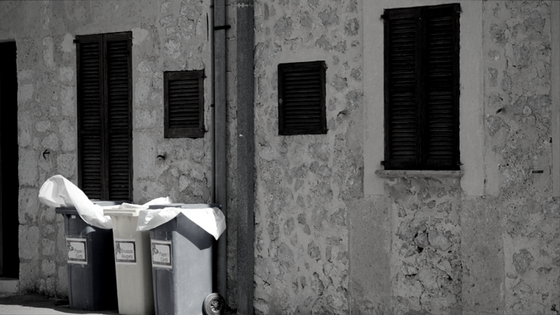Waste Management – what business owners need to know: In this article we aim to provide our readers with a comprehensive and complete answer (well at least as complete as we can provide in a single blog post) to how you should set about getting great prices and excellent services for your business waste management and recycling services.

We will cover common pitfalls, the bin sizes and frequency you may need, how to put in place a waste management plan and introduce cost saving and environmentally beneficial recycling services. We will then cover the benefits of not signing a long term contract and pretty much anything else we think will be valuable to you. Phew! That is quite a lot – but at least it should be really informative for readers who are new (or not so new) to booking commercial waste management services.
COMMERCIAL WASTE MANAGEMENT: AVOIDING COMMON PITFALLS
The first thing to remember when you are seeking a waste disposal provider, is that you do not need to select the first company you come across or go with the first rep who visits your site or knocks on your door.
The keys point to consider are whether you really want to sign a multi year contract for waste and recycling. At all times you should be thinking about your future business flexibility and how your requirements may change in the next few years. Waste providers will seek to lock you into a long term, exclusive supply contract for obvious reasons such as the salesperson commission, security of revenue etc and the ability to increase your rates in the future.
You should get the rates you have committed to on paper and be sure about how and when they will be adjusted. Some suppliers may quote an appealing low rate at the beginning of the contract to ease the sale and then seek to increase your rates soon after that.
As a business person who is not an expert in the waste management industry you will be uncertain as to whether you are receiving a competitive market rate and shopping around is time consuming as most companies will not quote a price online or without coming to visit your business.
You need certainly to be aware of rollover clauses contained in the proposed contract. This clause could read something like the below:
“This waste management agreement will automatically renew at the end of each term for a further term of 3 years unless either party gives the other written notice of termination at least 30 days prior to the end of the relevant term”.
Clauses like this can also be known as automatic renewal or evergreen clauses and will renew a contract unless notice to terminate it is given within a time window prior to the expiry date. A major issue with clauses of this type is that most business owners are extremely busy and can easily miss this window – they have more to be doing than looking at small print in old contracts!
WHAT BIN SIZE AND FREQUENCY DO I NEED FOR MY BUSINESS?
If you want to save money and boost recycling, it is key that you put some effort into producing a basic but effective waste management plan. The time you spend on this will certainly pay dividends later on. You can also get help in developing a plan and potentially government assistance through the NSW Bin Trim programme.
A. Get a clear understanding as to your current situation. Estimate volume of waste you are actually producing currently – i.e. weights, volume (metres cubed) of your general waste bins, collection method, current pieces, how many bins you have (and the sizes and position in your yard area) and the recycling percentage that you are currently achieving.
B. Check the details on our current waste services contract. make certain how long your current contract runs for, when it will rollover and if there are any negative clauses in there for you.
C. Begin organising your collections in a more efficient manner. Recycling is generally cheaper than general waste bin collection and disposal, so removing recyclables from your bins and putting in place a dedicated cardboard collection can save you money. You may even be able to obtain free cardboard recycling depending on the quantities you produce.
E. The correct bin sizes is the next step to work out: if you have been able to remove a certain proportion from General Waste (to go into cardboard or commingled recycling) you will need to work out the weekly volumes you produce and then choose the appropriate wheelie bin sizes. .
We also recommend considering how best you can position your bins and what posters or garbage bin stickers would be most useful in helping your staff make the best decisions as regards driving recycling.
AUSTRALIAN WASTE MANAGEMENT – WHAT DRIVES COSTS?
The Sydney area is covered by the NSW EPA so waste disposal at landfill is affected by the state landfill levy. In the Metro region as defined by the NSW EPA the current levy is $135.70 per tonne disposed at landfill as from 1 July 2016. See link to EPA website here. Equivalent systems are in place in other metro regions. Note: there is no levy in Queensland.
In Sydney metro region, the EPA waste levy on waste disposed of in landfill has increased on 1st July from $133.10 per tonne to $135.70 – an increase per tonne of $2.60 or 1.95%.
This levy serves to increase the cost of General Waste above that generally paid in other Australian capitals and also makes recycling much more important and cost effective for you.
Due to the high cost of waste disposal in Sydney (and reflecting the State Governments stated intention to drive recycling) has ensured that recycling is very cost effective for most small businesses. Due to the large population, major waste companies have invested in sorting and recycling facilities that ensure more potential waste can be recycled into reusable paper, cardboard, metals etc.
COMMERCIAL RECYCLING SERVICES – WHAT IS AVAILABLE?
Reflecting the higher prices of waste management in Sydney and Melbourne than in the majority of the rest of Australia, there is strong demand for recycling services and a healthy recyclable commodities market whereby collected resources are reused or reprocessed.
Reflecting the waste management plan that we covered above – you should really seek to boost your recycling performance for the twin benefits or reducing cost and improving environmental performance. By following some of these tips – you should be able to help the environment and also reduce your business costs. We have seen businesses easily save $000’s per annum with simple changes.






















